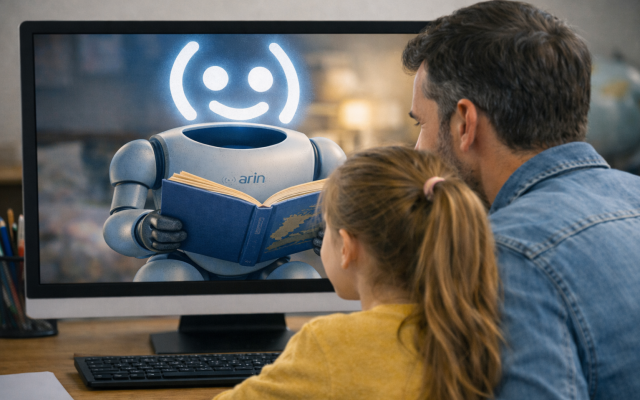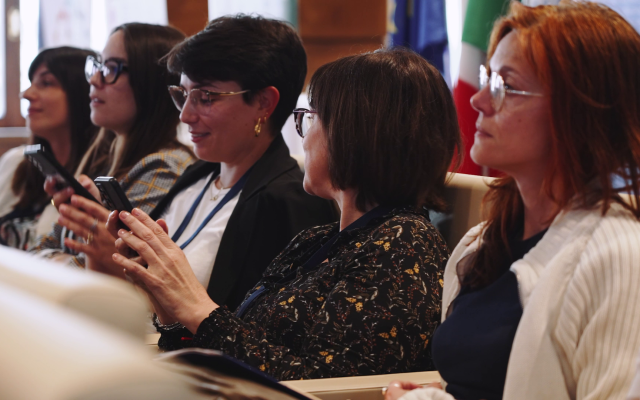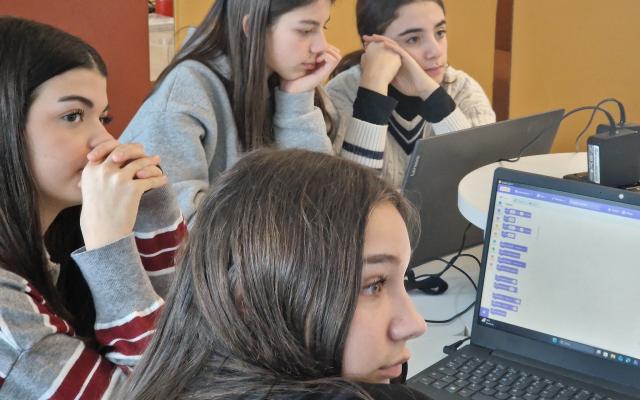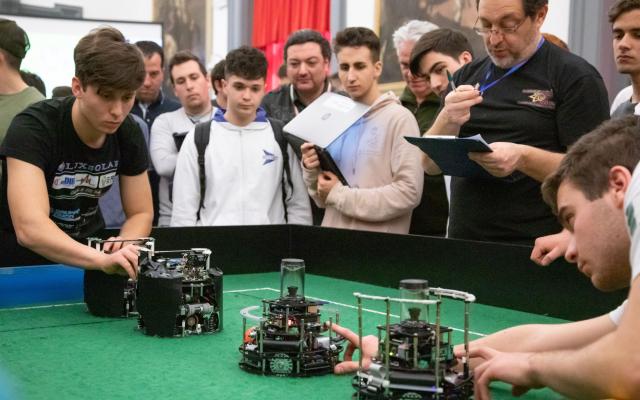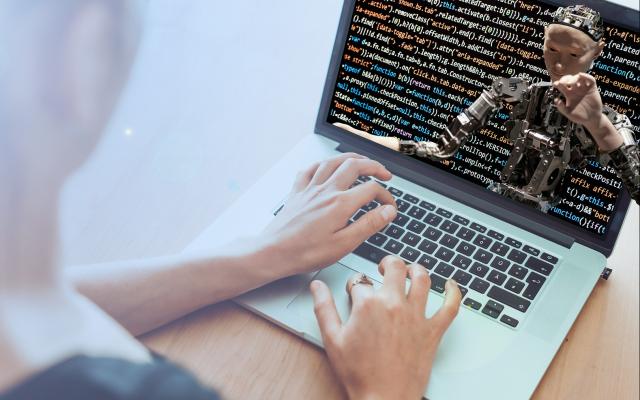RomeCup 2025 brings together young people, businesses and responsible innovation
Avanade has also joined the network of institutions, schools and companies involved in RomeCup 2025. The company, which has been active in the innovative digital services sector within the Microsoft ecosystem for 25 years, is one of the protagonists of the event on the ‘Manifesto for collective action on AI and robotics’, on the morning of 8 May. In addition, for the Ital.IA Lab project, it is promoting the final event of the training course ‘Small businesses, big opportunities. Discover the power of generative artificial intelligence for productivity and automation’, together with Microsoft Italy, in collaboration with Unioncamere and Dintec. The event, on the afternoon of 7 May, will see 50 entrepreneurs from small and medium-sized enterprises compete on proposals for possible applications of generative AI in business processes.
Emiliano Rantucci, CEO of Avanade in Italy, comments on the synergy between Avanade and RomeCup 2025: ‘With RomeCup, we share values and objectives, such as the importance of promoting innovation and technological education among young people. The RomeCup offers the opportunity to bring the new generations closer to technical-scientific paths and develop fundamental professional skills for the future. We are excited to contribute to this event and to support initiatives that promote the integral development of people and communities’.
Attention to the world of young people, to continuous training, to technological transformation understood as a project participated from the bottom up, is in Avanade's DNA. ‘We have always believed in the importance of training the younger generations and involving them in facing the challenges of the future. One of our most successful initiatives is the ‘School of Innovation’, a comprehensive training programme that aims to develop technical and process skills, involving our employees and the talents of our clients' companies. We believe that offering opportunities for continuous learning is essential to encourage students to actively participate in technological transformation processes. We collaborate with schools, universities and organisations to create training programmes that prepare the younger generations to become agents of change. We also listen carefully to the needs of our younger colleagues, through initiatives such as the ALLI Survey and the Next Generation Board, which allow us to gather valuable feedback and adapt our strategies to better meet their needs,’ explains Rantucci.
The Alli Survey (Avanade Listens, Learns and Improves) is a tool used by Avanade to gather feedback from employees regarding their work experience and well-being in the workplace. This survey focuses on inclusion and engagement to understand how employees are experiencing their experience and what improvements are possible. Participation in the survey is voluntary and confidential, and the results are analysed to plan and implement concrete actions to improve the experience of our people. The feedback collected is used to support Avanade's global, regional and local initiatives. The survey includes questions on various aspects such as the onboarding process, the buddy programme, diversity and inclusion, and general well-being.
The Next Generation Board is a committee made up of colleagues born between the eighties and the first half of the nineties. This committee periodically interfaces with the Leadership Team to integrate different perspectives on fundamental issues such as Employee Experience and business development. The main objective of the Next Generation Board is to build a leadership model that is increasingly collaborative and inclusive, responding to the expectations and priorities of young professionals, which are often different from those of previous generations. The committee members are divided into heterogeneous working groups on different topics, which take turns in proposing ideas and reflections. It is the moment when newly hired workers can indicate their career expectations and the first feedback on the period spent in the company’.
‘With the rise of artificial intelligence, the contribution of young people is perhaps even more decisive than in the past. For this reason, we have cultivated a close relationship with universities, schools and third sector organisations. We want to get in touch with young women and girls to offer them an active participation in the innovation processes’, adds Rantucci.
As for the impact on the well-being of the community, ‘The positive impact of AI on society is already evident and can only grow with its increasingly widespread and differentiated adoption. For example, in healthcare, AI is already helping to diagnose diseases more quickly and accurately, improving the quality of care and saving lives. In the field of education, many organisations use AI to personalise learning, adapting teaching content and methods to the predispositions, abilities and aspirations of students, thus making the course of study much more efficient and rewarding. The potential of artificial intelligence for inclusion will be very high: think of linguistic, cognitive and physical barriers. Another good example is the optimisation of natural resources, where AI helps to manage energy and waste in a sustainable way, protecting the environment and promoting responsible development. These are extraordinary opportunities that are transforming our society for the better, creating a more prosperous and inclusive future for all. Provided that these applications are seen as complementary tools and not substitutes, the effect could be to extend the potential for learning with a considerable capacity to adapt content and tools’. A dimension that concerns not so much productivity as the efficiency of processes.
Precisely with the world of companies in mind: ‘At Avanade, ethics and social responsibility are the basis of our choices. We are committed to developing solutions that respect ethical principles and promote people's well-being. In addition, we support our clients in integrating social responsibility practices into their business strategies. A concrete example is our responsible AI framework, which helps companies implement ethical and transparent practices. This includes tools to improve the fairness, interpretability and privacy of AI systems, reducing the risk of biased results and discriminatory practices’.
The human-centric approach, where technology becomes a tool to improve quality of life, thanks to intuitive and accessible experiences that always respect human beings, is perfectly in line with the actions set out in the Manifesto launched during RomeCup 2024. ‘We want to promote ethical and inclusive innovation with a positive impact on society, building a bridge between the new generations and the business world, so as to reduce the gap between skills and labour market demands. An ideal ecosystem that connects young talent with companies open to innovation’, concludes Rantucci.

